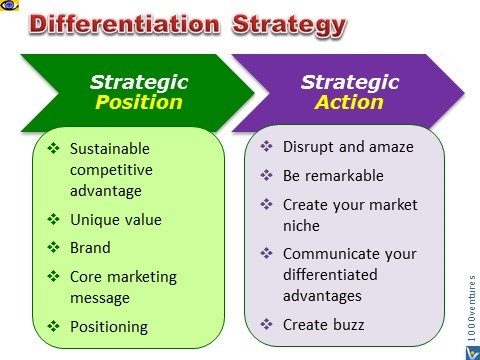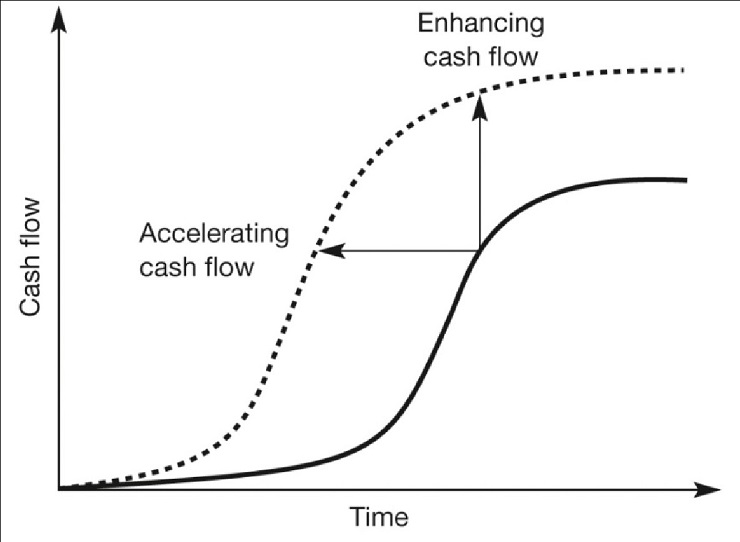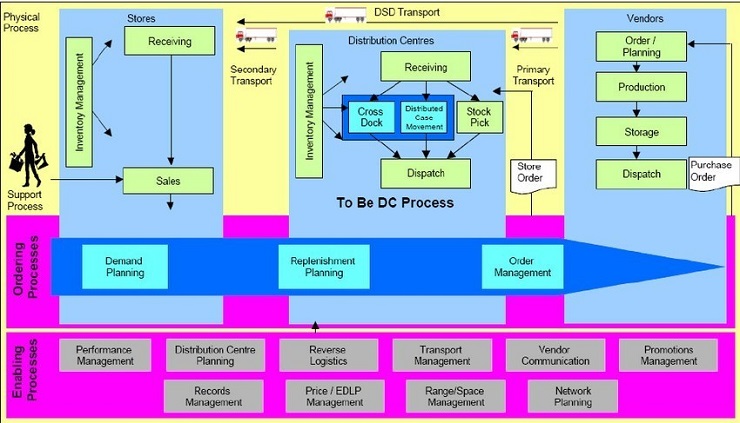Woolworths Procurement Strategy Assignment
1. WOOLWORTHS’ AUSTRALIA
Woolworths is one of the biggest retailers in Australia and New Zealand. The company was founded 95 years ago in September of 1924. Despite similar names, it has no affiliations with the American F.W Woolworth Company, the defunct British Woolworth Group, or the South African company with the same name (Hepworth and Newman, 2019). The company's primary operations are supermarkets under the Woolworth brand, discount department stores, sale of liquor under its brand, BWS, and it also operates a chain of hotels and pubs. By revenue, it is Australia's second-biggest company. Woolworths serves a diverse range of clients, and us such the company cannot create a standardized product or service to meet their needs. The diversity of its customers led the company to adopt 'Differentiation Strategy' as its current business strategy. This strategy allows the company to offer unique services and products attribute that appeal to a wide range of its customer base (Van and Kirkham, 2020). This approach works well as the company puts the customer's needs first and focuses on creating a unique and pleasant customer experience. It goes a long way in retaining the customer and fending off any competition from rivals in the retail sector. This business strategy will provide the company with an edge over the competition, and implement these strategies strategic decisions relating to the supply chain must be made. These decisions are shaped by the needs of the business and the customer and take advantage of its position in the marketplace (Nakandala and Lau, 2019). They should also be flexible and adapt to changes in market conditions. Some of the benefits Woolworths enjoys from the adoption of this strategy include Reduced competition, the provision of unique products, high-profit margins, and customer retention.
DIFFERENTIATION STRATEGY: Definition ... 1000ventures.com

2. Woolworths supply chain
A supply chain is all the links and functions undertaken by an organization from the acquisition of raw materials from a supplier to delivering as a finished product to the consumer. The consumer is the final step in a supply chain. Activities in a supply chain comprise sourcing, procurement, order processing, warehousing, logistics, and consumer services. Financial transactions accompany the entire processes of supply chain management, as demonstrated in figure 1 below.

Figure 1 source: (Fortenberry, JE 2018) Optimizing the Supply chain, Business Expert Press New York
A good supply chain can lead a business to achieve a superior competitive advantage through the proper management of linkages between the value chain. Woolworths's supply chain is remarkable because it has achieved some remarkable financial gains through the redesigning of their supply chain strategy in a strategy operation known as project refresh. The improved supply chain enables Woolworths to be able to save on costs considerably. Notably, improved and effective supply chain management facilitates a company to achieve acceleration and enhance cash flow, as demonstrated in Figure 2 below. This massive achievement by Woolworths Australia has led them to be listed in AMR supply chain top 25 companies two years in a row.

Figure 2 Changing the cash flow profile. Source: (Srivastava, R. et al., 2018)
Woolworths adopted a direct supply chain; it adopted this strategy to minimize the cost and maintain control over its products. Woolworths Australia connects to its vendors and stores through a strategically set up distribution centers around the country. Besides, Woolworths' control over Direct Store Delivery (DSD) enables vendors to directly supply goods from their warehouses to Woolworths’ stores across Australia. The figure below illustrates the supply chain through Direct Store Delivery. This strategy's effectiveness and general performance of supply chain management are trackable through a metric that considers and tracks supply chain cost (efficiency) and customer service/value (supply chain's effectiveness). Supply chain managers can effectively understand and represent the supply chain's effectiveness and efficiency by keenly tracking variables like cash-to-cash conversion time, supply chain response time, inventory days supply, and on-shelf in-stock percentage.

Woolworths Supply Chain System (Source: researchgate.net
The project refresh led Woolworths to reduce and merge distribution centers from 31 to only 9 Regional Distribution Centres (RDC); this was aimed at increasing efficiency and reducing cost.
These regional distribution centers are located strategically across Australia; they can be found in Perth, Wodonga, Wyong, Townsville, Mulgrave, Yennora, Brisbane, and Adelaide. The decision to reduce distribution centers reduced the cost of leasing warehouses, inventory cost, and freight cost by producing 80 percent of Woolworth's products in Eastern Australia. Based on how their supply chain system is set up, the upstream and downstream functions of the supply chain has been made more effective. The upstream process, which entails managing the relationships with suppliers, is more straightforward because Woolworths has created a good relationship with its suppliers. Woolworths has been commended for working closely with Australian farmers, and they source almost 96% of its raw materials and products from local growers. This relationship ensures that the upstream functions of the supply chain run smoothly. Woolworths does not use retailers, but instead, they distribute goods through their departmental stores around Australia. Therefore, the downstream function of the supply chain is easy to manage and control. The unique supply chain of Woolworths provides them with an edge in both their Macro- and Microenvironment.
3. Potential challenges
Supply chain strategies have always been implemented as devices for cost reduction by a company. Currently, it is majorly about how a company can create and deliver value to its customers. It means that the company has to balance its business needs with its customers (Brindley, 2017). Woolworth has attracted the Australian federal government's attention and the Australian Competition and Consumer Commission (ACCC) for supply chain strategies. They feel that the company is using its influence and power to bully suppliers to lower their prices and make deals that are unfavorable to them (Nakandala and Lau, 2019). This is a unique challenge to Woolworth as they aim to create and deliver value to the customers. When the company is perceived as engaging in unhealthy business practices, this harms their image. Another factor that poses a challenge to the supply chain of Woolworths is risk management. Project refresh minimized distribution centers from 32 to only 9. Therefore Woolworth's is heavily dependent on these few distribution centers to maintain the smooth flow of the supply chain. In the eventuality of a disaster such as a fire, Woolworths's operations will be completely paralyzed. Other factors, such as a change in the market due to customer preferences, political agendas, and global factors, would pose a threat to Woolworths supply chain.
4. Conclusion
Supply chain strategies are a delicate art. The company supply strategy should focus on balancing the needs of the consumer and offering them low prices with suppliers' needs in finding a reasonable price for their products. By seeing this balance, they will be able to create and deliver value to all the stakeholders in their logistics network. The implementation of this strategy will enable them to have an efficient supply chain.
References
Brindley, C. ed., 2017. Supply chain risk. Taylor & Francis.
Hepworth, K. and Newman, F., 2019. Trade Unions v. Social Audits: Addressing Labour Exploitation in Woolworths Domestic Food Supply Chain. Hum. Rts. Defender, 28, p.14.
Nakandala, D. and Lau, H.C., 2019. Innovative adoption of hybrid supply chain strategies in urban local fresh food supply chain. Supply Chain Management: An International Journal.
Van Kampen, T. and Kirkham, R., 2020. Assessment of the Supermarkets and Grocery Stores Sector in Australia: A Case Study of Woolworths and Coles using DEA and VAIC™. Journal of New Business Ideas & Trends, 18(1).
LeMay, S, Helms, MM, Kimball, B & McMahon, D 2017, ‘Supply chain management:
The elusive concept and definition’, The International Journal of Logistics Management, vol. 28, no. 4, pp. 1425-1453, doi: 10.1108/IJLM-10-2016-0232
Liu, Q, Rezaei, AR, Wong, KY & Azami, MM 2019, ‘Integrated modeling and optimization of material
flow and financial flow of supply chain network considering financial ratios’, Numerical Algebra, Control & Optimization, vol. 9, no. 2, pp. 113-132, doi:
10.3934/naco.2019009.
Fortenberry, J.E. (2018). Optimizing the Supply Chain. Business Expert Press, New York.
Srivastava, R. K., Shervani, T. A., & Fahey, L. (1998). Market-based assets and shareholder value: A framework for analysis. Journal of marketing, 62(1), 2-18.


